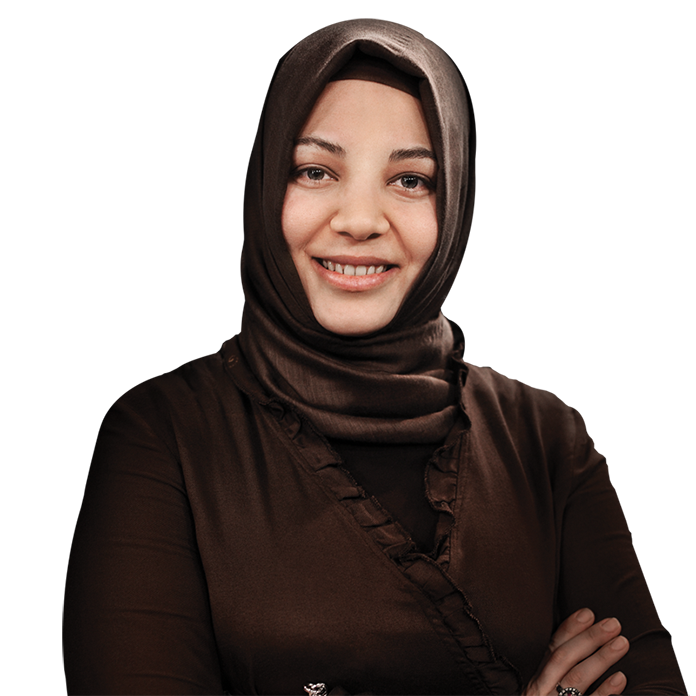
- 19.01.2025, Sunday
- 03:41
Are the Alevis and Sunnis siblings?
10:1612/11/2014, Çarşamba
U: 12/11/2014, Çarşamba
Next article
Hilal Kaplan

It is being stated that Prime Minister Davutoğlu will continue in establishing trust and compensation attempts devoted to the Alevi segment, and his next stop will be a djemevi and afterwards possibly Dersim. As we had written before, no matter who tries to enchafe this, this is a valuable effort, which should be maintained. I wanted to share some notes on my mind, which I deem important on this matter: My first question is directed at the public: “Are the Alevis and Sunnis siblings?” I think
It is being stated that Prime Minister Davutoğlu will continue in establishing trust and compensation attempts devoted to the Alevi segment, and his next stop will be a djemevi and afterwards possibly Dersim. As we had written before, no matter who tries to enchafe this, this is a valuable effort, which should be maintained.
I wanted to share some notes on my mind, which I deem important on this matter:
My first question is directed at the public: “Are the Alevis and Sunnis siblings?” I think both segments should ponder over this question. In the present situation, AK Party is advancing in solving the Alawism within the religious fellowship expression. However, the civil society hasn’t even taken a step, unlike the government. Then, how should this failing be regarded? Besides, since we are living in a country, where the prejudices, which had been piled up since the Ottoman period, had consolidated with the Republic period, the responsibility left on the civilian public must be as vital as the government.
Today, for example, if you go to the center of Tokat, you can see that a street, which is full of restored nice houses, had been memorialized as the “Jewish street”. This is a beautiful indicator and reminded of the multi-language, multi-ethnic and multi-religion structure of the Ottomans. However, at the same time, you can see that many Alevi settlements/villages are far away from the center in remote places. Or, some of your Alevi friends will talk about the nuisances their ancestors/grandparents had experienced and some humiliating acts they had encountered because of the bears during the periods when their ancestors/grandparents had gone down to the city center. In other words, there is a variety of different examples of bad treatments and exclusions in the Alevis’ communal memory. The “How much of this had started in which period?” question is a matter for the researchers; however, we should remember that the city centers, where Sunnis are living in high-intensity, were deprived of Alevis, other than the past 50 years.
After all, the spawning of the issue, which is called the “Alevi issue”, started when the Alevis covered a distance in urbanization, and in the 90s, they had gained visibility. Even though the djemevi factor is an emergent notion that had been revealed during this process, it possesses a meaning that points at the urbanized and modernized Alevis’ place of worship, which could be regarded as an equivalent of the village room, dervish lodge, dervish monastery and zawiyah that had been turned into “djem”s. Thus, this naming had also been brought forward in the beginnings of the 90s, and with the occasion of the President of Djem Foundation, İzzettin Doğan.
While Sunnis’ prejudices aimed at the Alevis are at a measurable scale, and according to the research, it is gradually decreasing, we are experiencing days where the Alevis’ prejudices towards Sunnis have hit top levels. For example, according to a research conducted in 2010, while only 10 percent of the Alevis had supported the removal of kerchief bans, 34 percent of the Sunnis leaned towards Djemevis being given the status of sanctuary.
The “minority psychology” in between the Alevis, which had been dominated by frustration and timidity for a long time, had now been replaced with grudge and rage, and even, malice. Also, it is being understood that this is especially being experienced in the young generations. The spitting image of the destructive anger, which is mentioned by HDP and attempted to be legitimatized by saying “hurricane youth”, is being cultivated by the Alevi youth.
Despite AK Party being regarded as the carrier and representative of the Sunni identity, and the Nusayri-Shiah line having a difference larger than the Alevism in our country, Alevis being engaged with Iran, whose “danger they were aware of”, and its satellite Assad regime, the AK Party government’s clear humane attitude against Assad in the Syria issue being regarded as “Alevi hostility” by Alevis, and a great portion of the citizens that had lost their lives in the Gezi attempt being Alevists, are all being regarded as the factors/reasons that had flamed up this anger.
However, even if these reasons weren’t present, it’s a fact that there is a segment, which fictionalizes the Alevi identity over “Sunni enmity” and cannot be underrated. Talking about worries and bestowing a hand to this segment, which regards Sunnism as the outer founder of the Alevi identity, is the most difficult area to reach results. Nevertheless, as steps aimed at a bigger part of the Alevis continue, a decrease in this exclusionist tendency or at least this tendency becoming marginalized can be expected.
If it’s destiny, we will be continuing with the djemevi issue, which is a tender spot in the matter.
#alevism
#Sunni
#Alevist
#Jewish
#multi-language
#multi-ethnic
#multi-religion
LEGAL NOTICE
The BIST name and logo are protected under the "Protected Trademark Certificate" and cannot be used, quoted, or altered without permission.All rights to the information disclosed under the BIST name are entirely owned by BIST and cannot be republished. Market data is provided by iDealdata Financial Technologies Inc. BIST stock data is delayed by 15 minutes.
